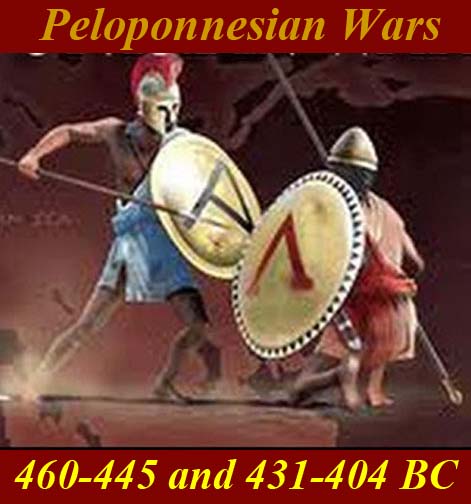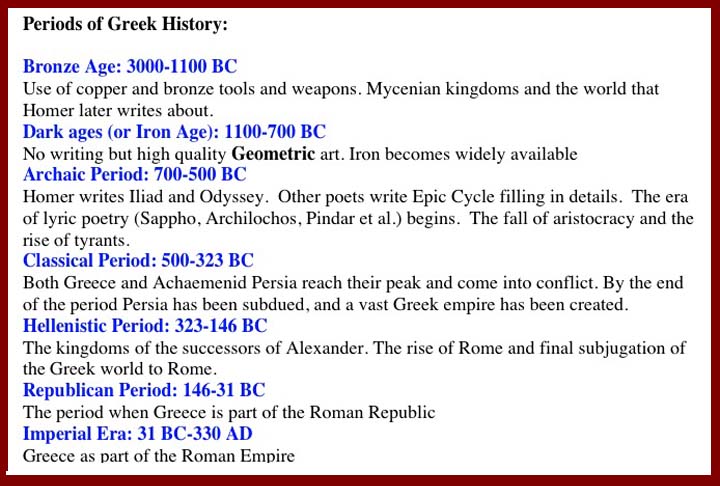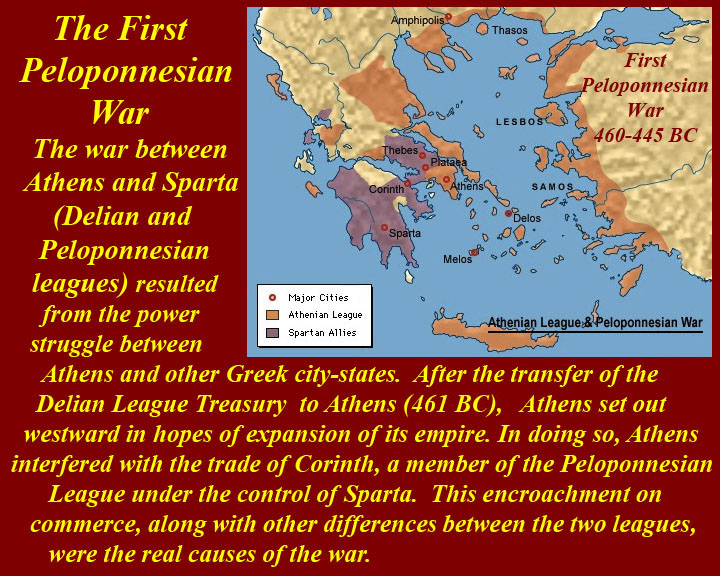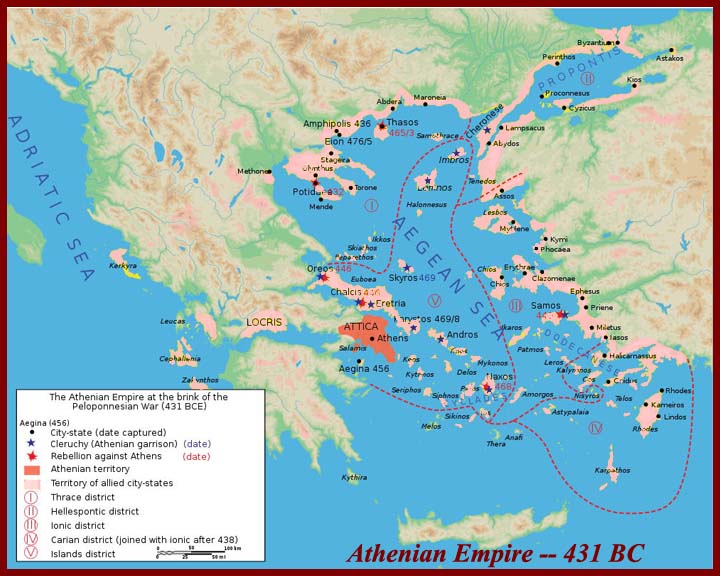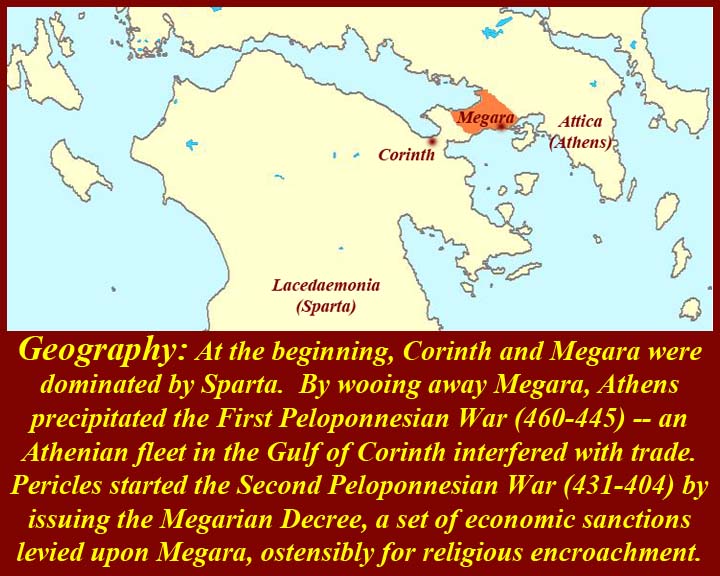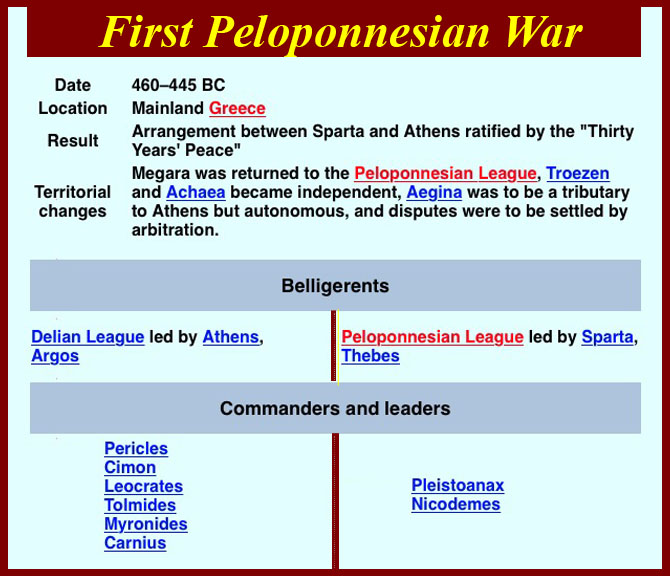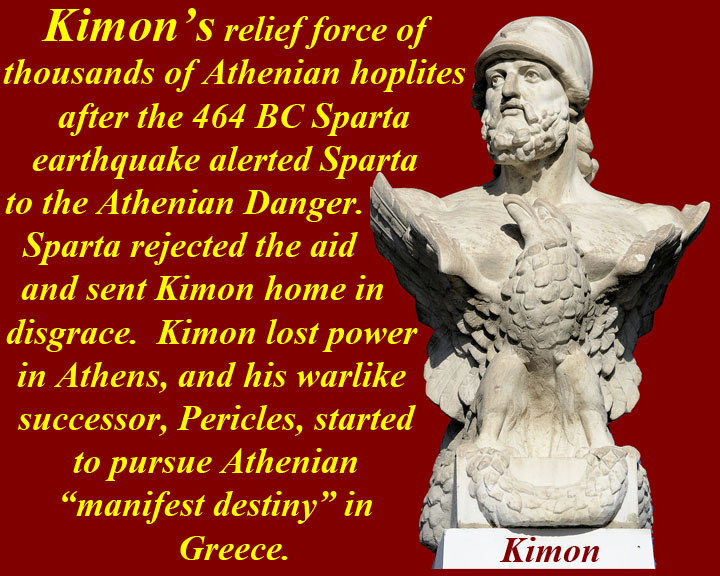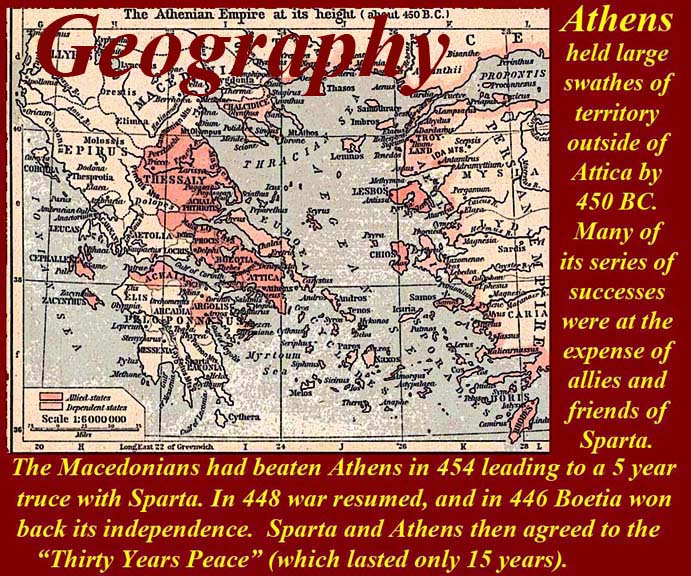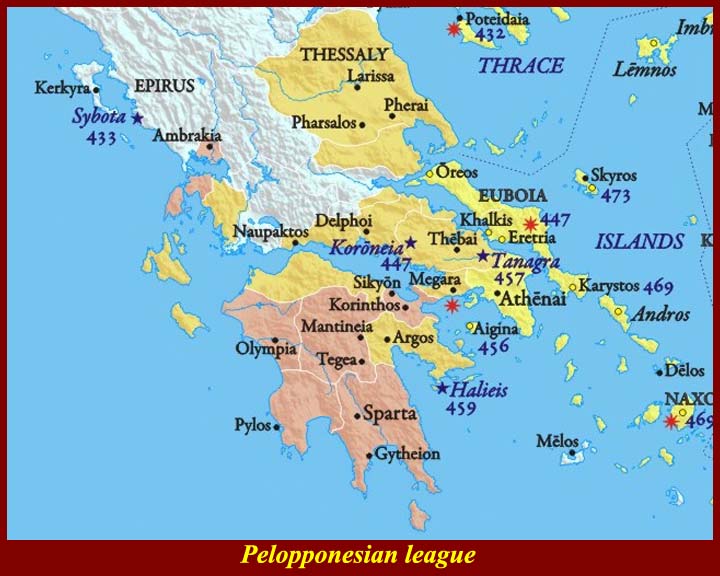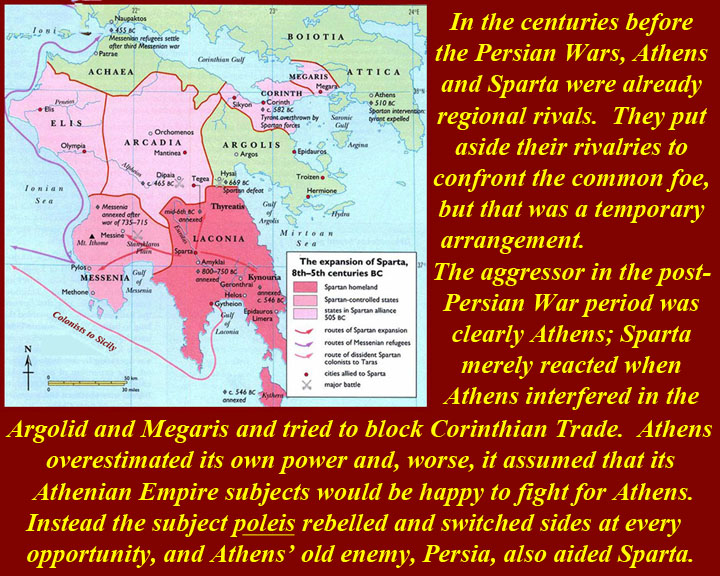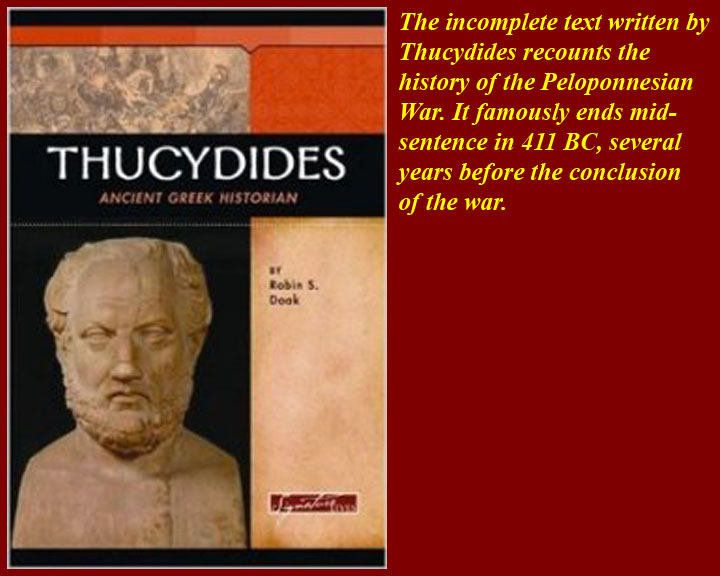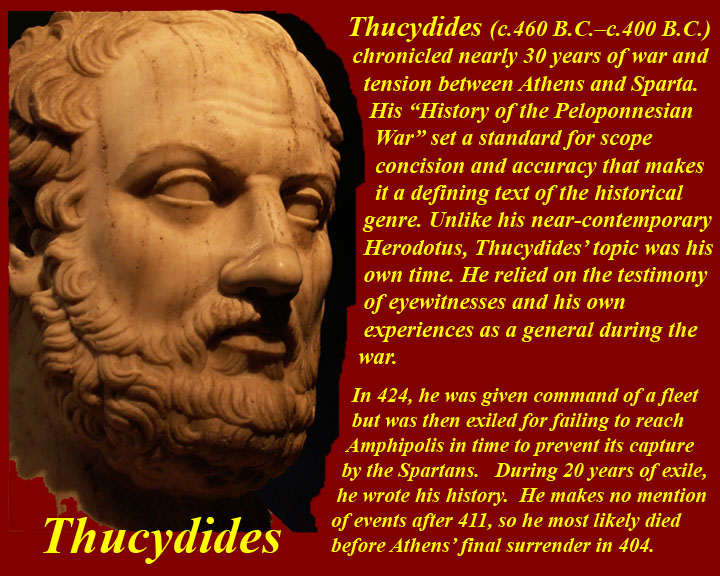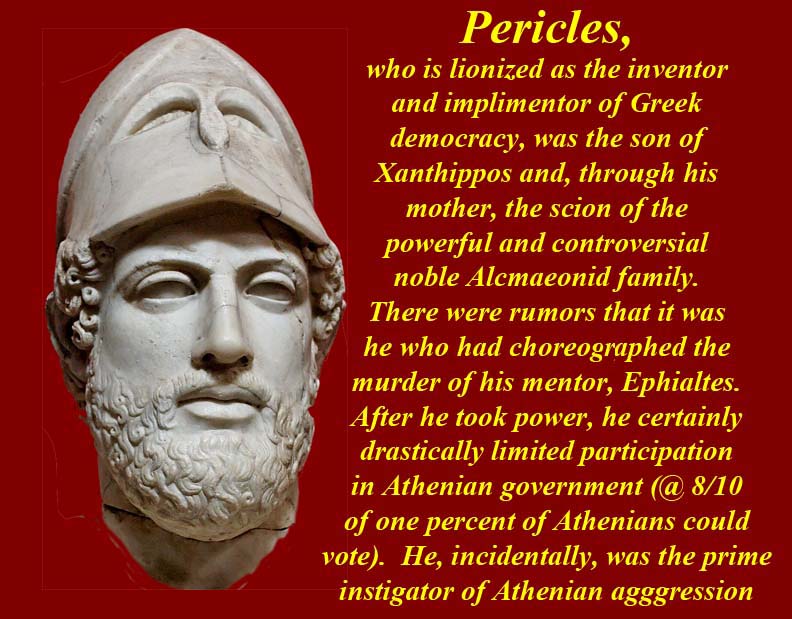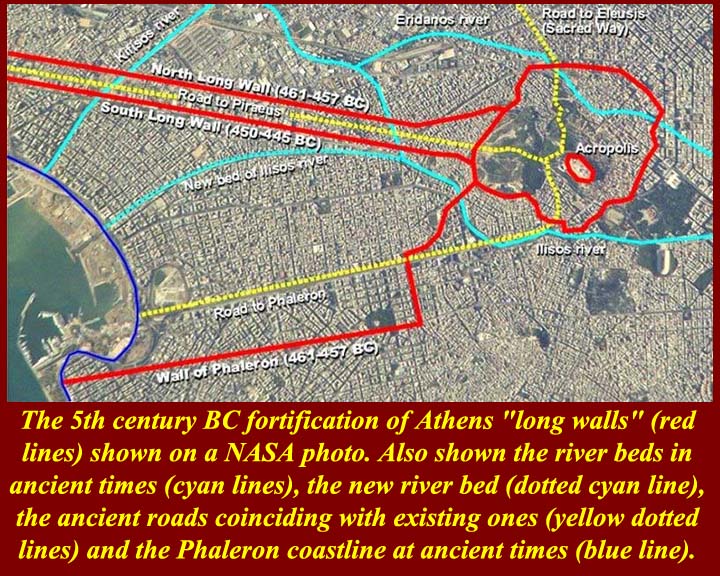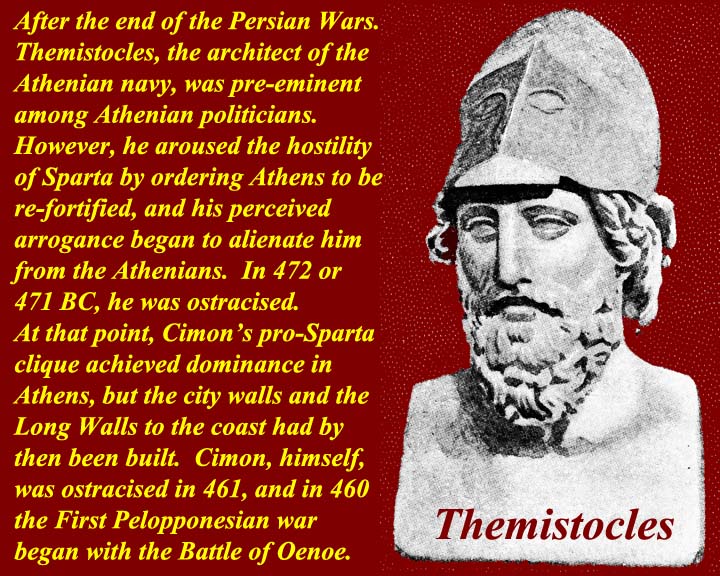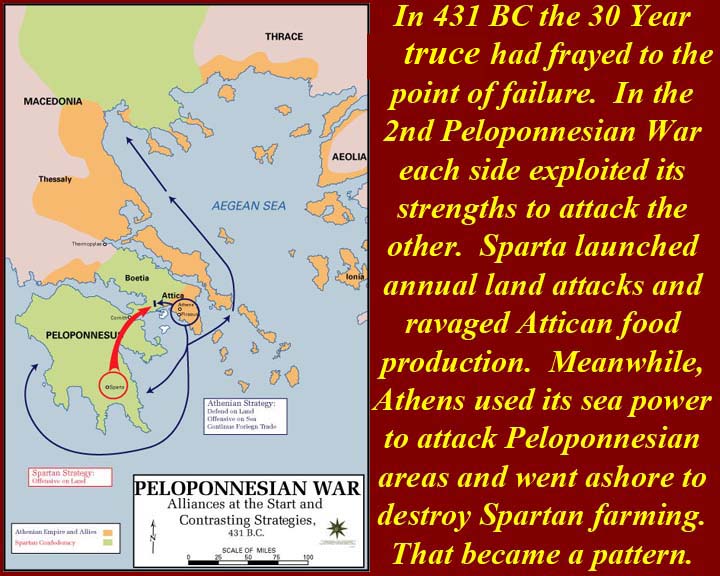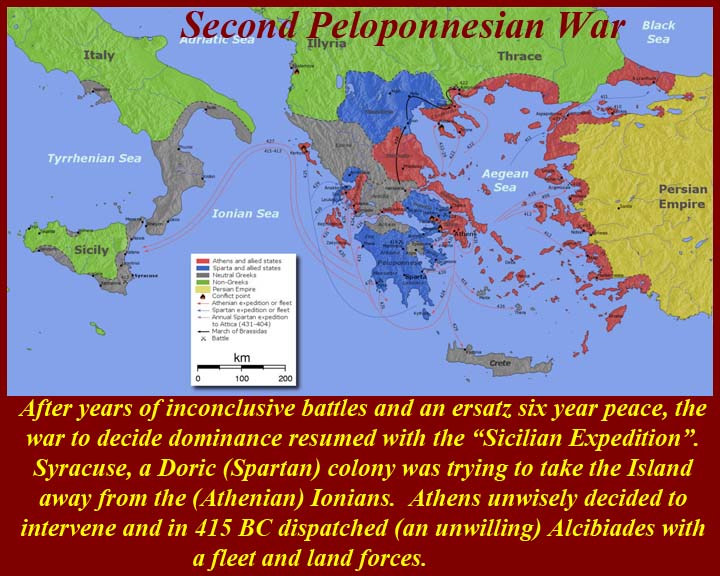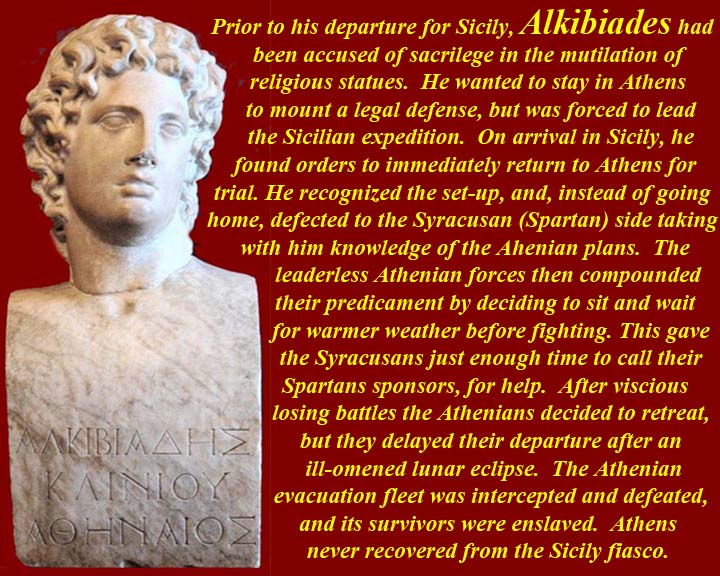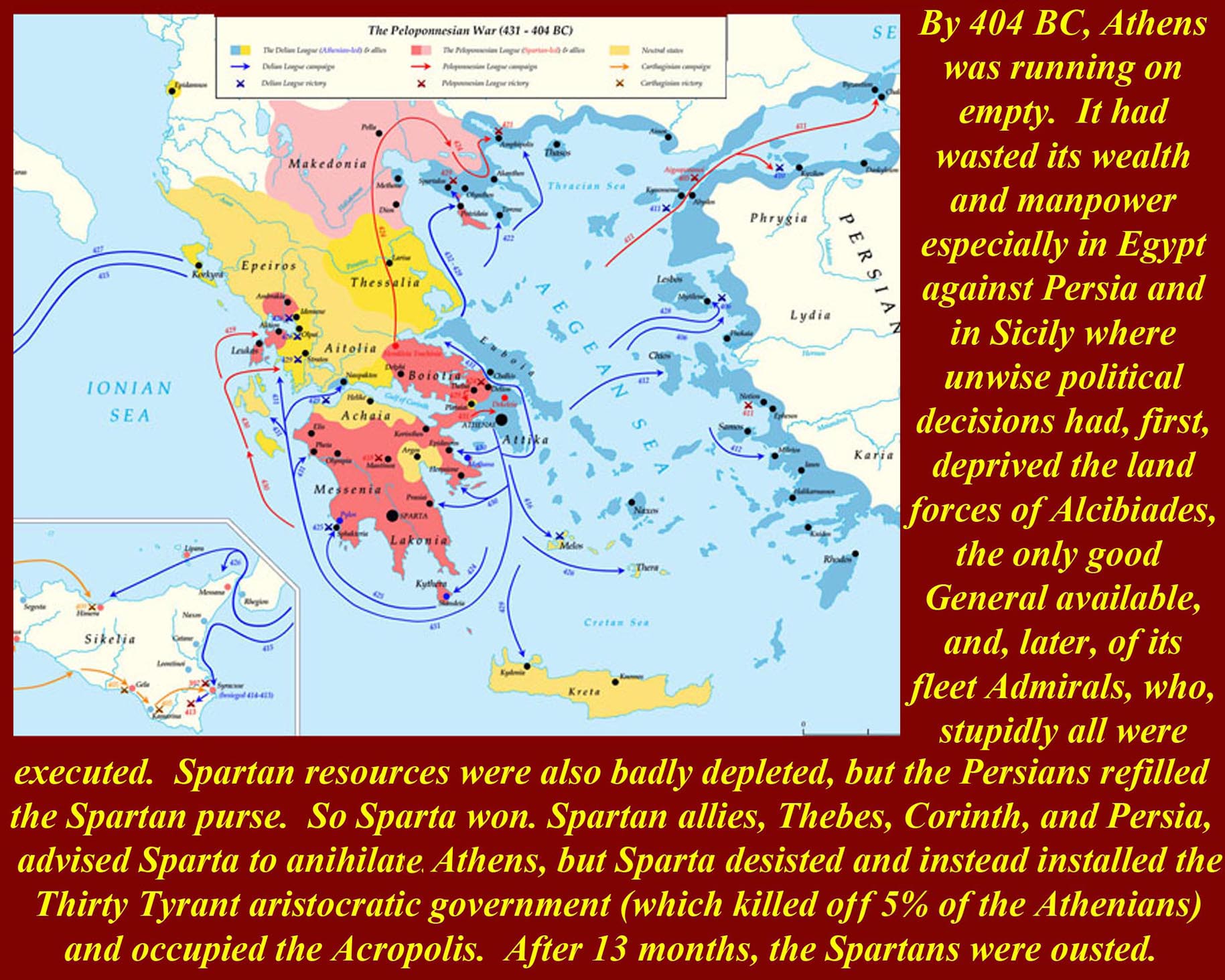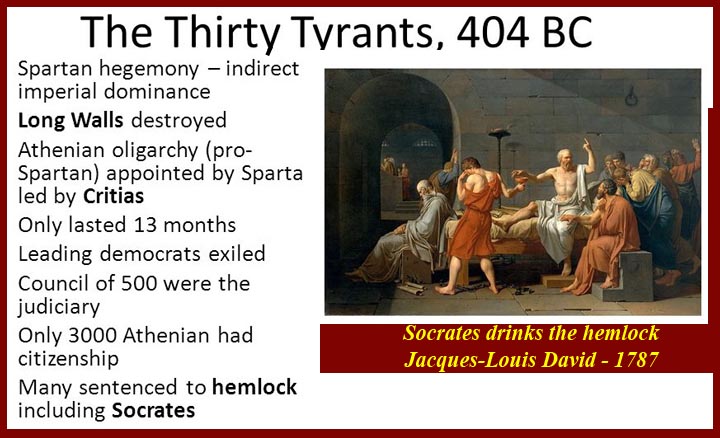Images, Unit 16 -- Ancient Greece 2
The Peloponnesian Wars were the inevitable outcome of the rivalry between Athens and Sparta. Contrary to what you may think (because you have been exposed to pro-Athenian propaganda tied to Athenian fake democracy) the Spartans were not the aggressors; they merely (and apparently reluctantly) responded to Athenian attacks.
The same situation was in place before the Persian Wars, but things were put on hold for the duration.
It's notable that the Persian Wars were also the result of Athenian meddling in Persian Ionia in support of the rebel, Aristagoras, who was a Persian appointed Tyrant of Miletus with Greek ancestry; Aristagoras faced removal after his failed aggression against Naxos and so led a revolt of the Ionian territories on the west coast of modern Turkey. Athenian assistance failed to make the "Ionian Revolt" a success and Persia vowed revenge against Athens. The expeditions of Darius and Xerxes into Greece were the result.
After the Persian wars, Athens, having misappropriated the treasury of the Delian League, became the Greek naval superpower, and, in addition to continued attack on Persian areas, began its push westward in mainland Greece, interfering with the internal affairs of allies of Sparta. Pericles and the Athenian "war party" leaders announce publicly that its actions in Greece were aimed at Sparta.
First Peloponnesian War 460-445 BC
Sparta, initially,was at a great disadvantage. It had followed the typical Archaic Period pattern of expansion at the expense of its neighbors, but it failed to copy the Athenian (and later, Roman) pretense of granting some rights to the people of its conquered poleis. Anyone conquered by Sparta was a helot slave, and they did all the work while the Spartans themselves trained for war.
There had also been major destruction because that great earthquake in 464 (see above) had devastated the Peloponnese leading to a helot revolt.
The pro-Spartan Athenian leader, Kimon, had led a relief expedition, but it was rejected by Sparta -- it apparently looked too much like an invading hoplite army -- and Kimon was ostracized. That (after the suspicious assassination of Ephialtes) put Pericles in power in Athens. Pericles was a warmonger, who saw the Spartan distress as an opportunity for Athenian expansion.
How we know what "we know" about the Peloponnesian Wars?
The primary source is Thucydides History of the Peloponnesian Wars. Thucydides wrote at the time of the wars and, in fact was an Athenian General in the wars. He is considered, by most historians, to be remarkably unbiased and clearly exposes the imperialistic motives and actions of the Athenians. (There are, of course revisionist theories that make him extremely biased.)
Also, it's clear that imperialism was something to be proud of at the time and for most of the intervening centuries until today (c.f., American "Manifest Destiny"). Still today, imperialism has a lot of support, even if it is sometimes hidden by claims that foreign intervention somehow avoids threats to existential homeland security.
c.f., http://www.history.com/topics/ancient-history/thucydides and
https://en.wikipedia.org/wiki/Thucydides.
The Richard Crawley 1866-1874 full text English Translation of Thucydides History of the Persian War is on the Internet at http://classics.mit.edu/Thucydides/pelopwar.html.
The Thomas Hobbes 1839 full text English Translation is on the internet is at http://oll.libertyfund.org/titles/hobbes-english-works-of-thomas-hobbes-11-vols.
The interesting frontispiece of Hobbes' translation --
It shows images of the urban areas of Sparta and Athens; of Spartan King Archidamos II (ruled ca. 476-427 BC) and Athenian strongman Pericles (ruled 461-429 BC); of aristocrats ("oi aristoi") and commoners ("oi Polloi") flanking an image of Thucydides; and of a Spartan hoplite phalanx formation opposed to an Athenian fleet. You apparently could tell this book by its cover.
Second Peloponnesian War 431-404 BC
Some historians consider the second period of war to be the one and only Peloponnesian War -- everythin before 431, they say, was just prelude. Regardless of how it's counted, it is definitly a result of the actions of Pericles.
One of the things that really got the Spartans really antsy was the construction of the Long Walls that ran down to the coastal ports used by Athens. The Spartans insisted that Athens should stop building, but Themistocles temporized and obfuscated in the negotiation until they were a completed fact. The Spartan threat to starve out Athens by burning its hinterland farm was thereby neutralized. The Spartans still made their annual raids on Athenian crops, but food flowed in through the Piraeus.
It is deduced that the farmers and herdsmen that flocked into Athens to avoid capture during the annual Spartan attacks raised the urban population to more than 400,000. Overcrowding and lack of sufficient sanitation infrastructure inevitably lead to an epidemic. The sickness has been called "a plague" (implying Bubonic Plague) but the symptoms described by Thucydides don't match. Other diagnoses have been attempted, and the recent Ebola Heamorrhagic Fever outbreaks in Africa have gotten the historical-medical gurus thinking in that direction. Some sort of Viral Heamorrhagic Fever does seem to match the symptom description better than other disease choices, but a characteristic of the viruses is that their DNA rapidly degrades below the point where proof is possible. (In fact, it has been argued that the very lack of disease DNA points toward something whose DNA degrades rapidly, but that is trying to prove a negative.)
Despite the epidemic losses and a thumping from Sparta's Macedonian allies, Athens continued to pursue adventures, the most disastrous of which was the Sicilian Expedition:
Spartan victory
P.S., A few years later(!):
The Corinthian War was an ancient Greek conflict lasting from 395 BC until 387 BC, pitting Sparta against a coalition of four allied states, Thebes, Athens, Corinth, and Argos, who were initially backed by Persia. The immediate cause of the war was a local conflict in northwest Greece in which both Thebes and Sparta intervened. The deeper cause was hostility towards Sparta provoked by that city's "expansionism in Asia Minor, central and northern Greece and even the west"
(See https://en.wikipedia.org/wiki/Corinthian_War)
vvvvvvvvv

